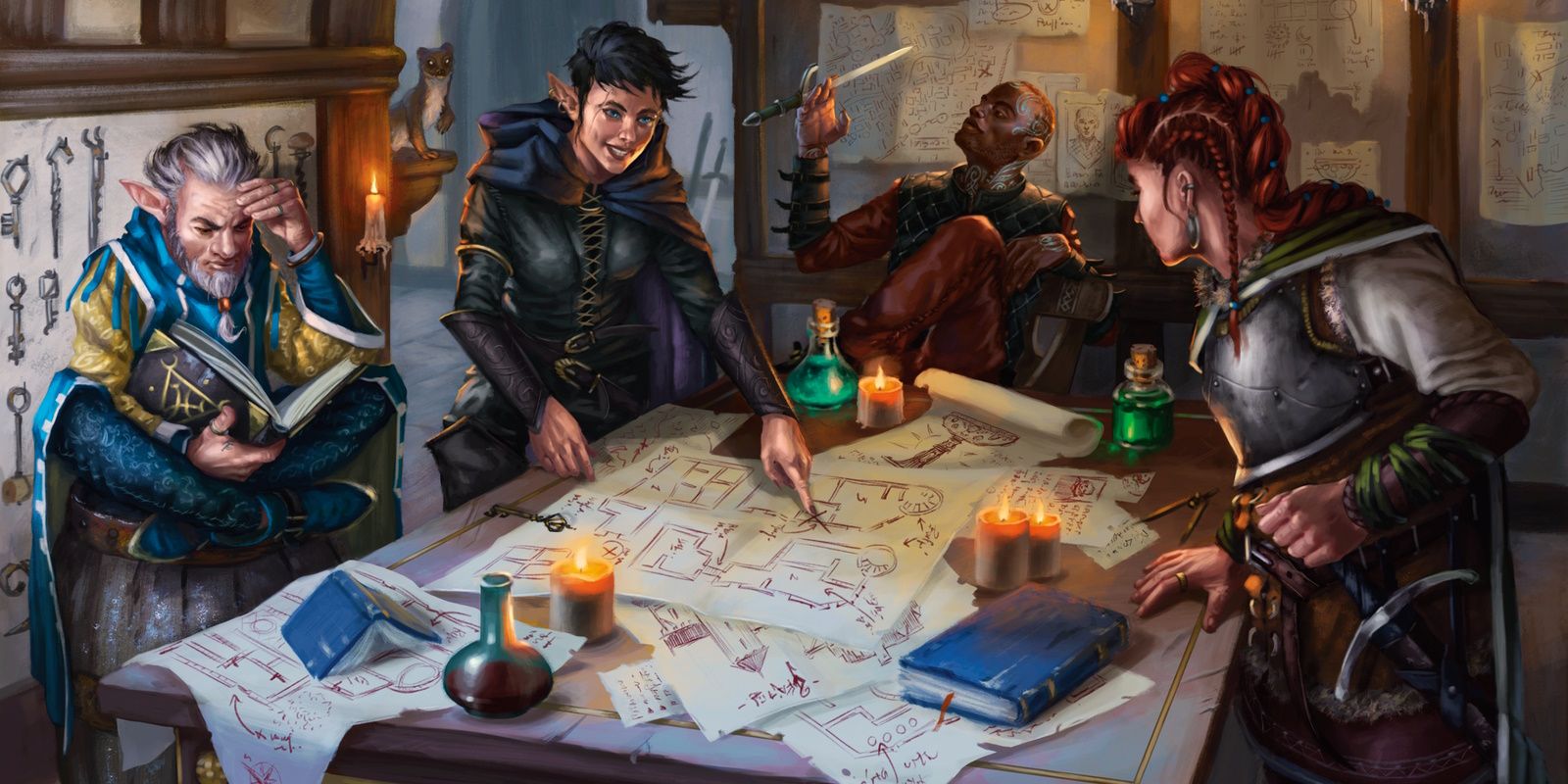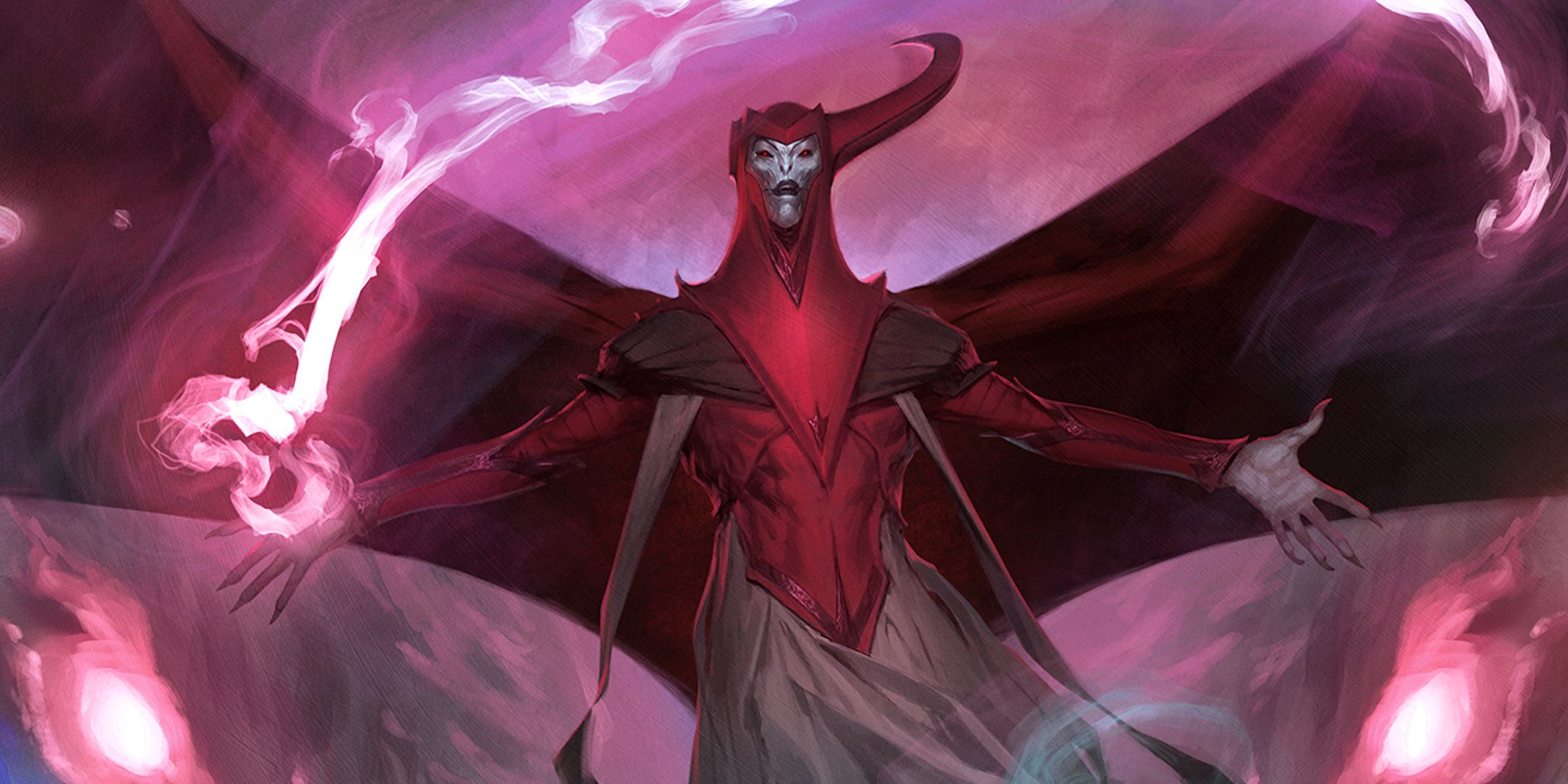It can be pretty daunting when deciding to be a Dungeon Master for the first time for Dungeons & Dragons. On top of all the rules to learn, encounters to plan, and plots to establish, there is also the pressure of living up to expectations set by well-known DMs like Matthew Mercer, Brennan Lee Mulligan, or Aabria Iyengar. However, it is this pressure that can spoil the experience for many, leading them to aim too high, too quickly.
Being a DM is already a lot of pressure, and even the most experienced Dungeon Masters can feel overwhelmed from time to time as they keep multiple plates spinning at once. I’ve seen plenty of newcomers fall into the same trap enough times to know that planning out grand Critical Role style campaigns straight off the bat rarely works out. While there are lots of great tips for new DMs, sometimes the simplest advice is the best: don’t try to run before you can walk.
D&D Is All About Getting The Essentials Right
Take It Slow & Learn Together
When first approaching a campaign as a new DM, it can be tempting to plan out elaborate plots and have ambitious ideas about how the games will go. It’s unfortunate to say, but this often leads to disappointment. I learned very quickly as a DM that no plan survives contact with the players, as they will inevitably do something so off the wall that you have to pivot or juggle your plan on the fly.
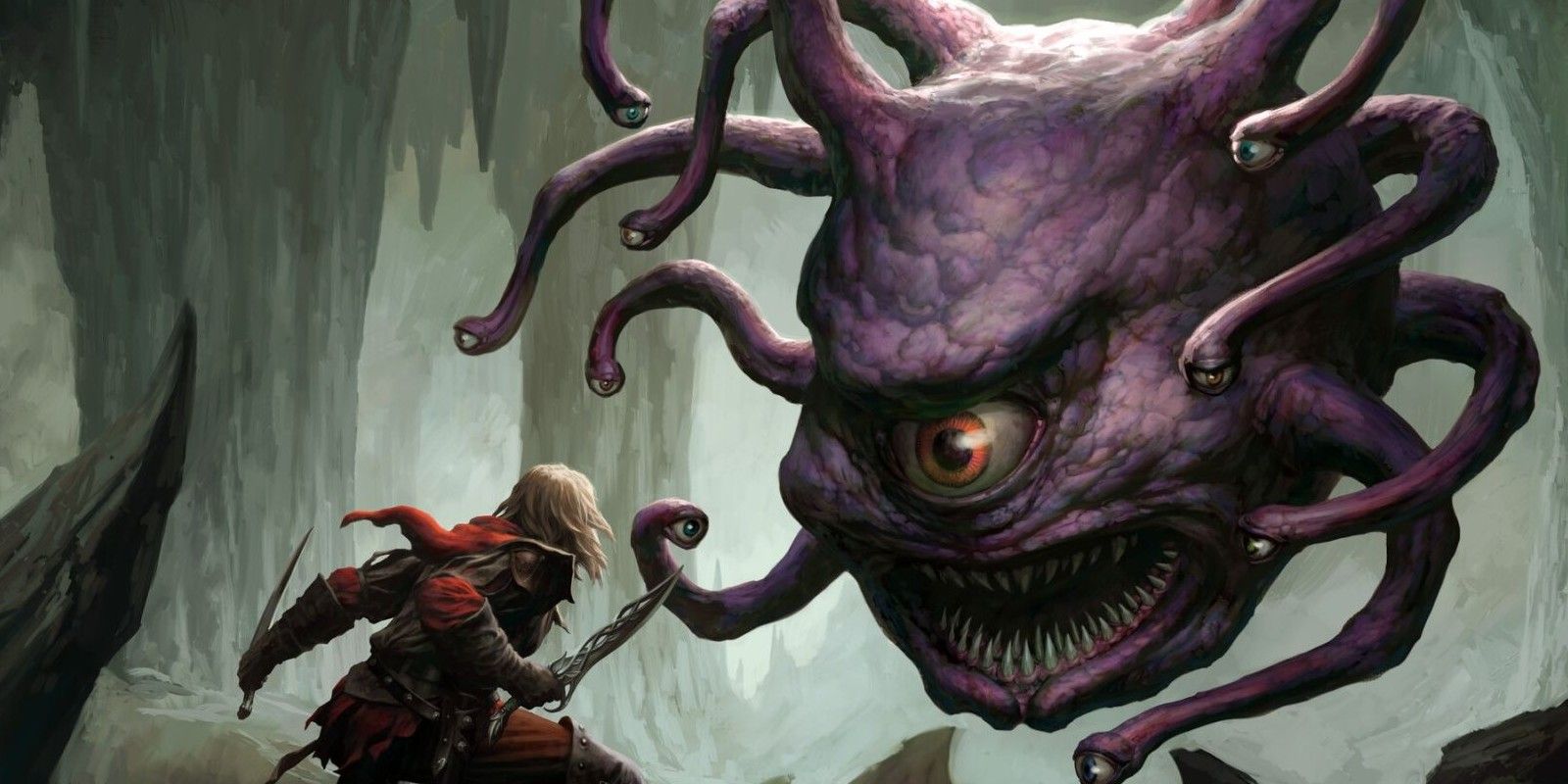
Related
D&D Rules DMs Shouldn’t Stress About Getting Wrong
Rules are important in D&D, but sometimes it’s more important for a DM to be willing to bend the rules to make sure everyone at the table has fun.
But that’s the heart of being a DM, and learning the basics will make this much easier to do the more you do it. DnD has tons of rules, and it’s unrealistic to memorize them all, as even veteran players/DMs like myself still look up specific rules as needed. However, getting to grips with the basics of the game, such as advantage/disadvantage, initiative, skill checks, and attack rolls, is enough to run a pre-written module and start building those DM skills.
There are many resources online that can break DnD‘s many rules into more easy-to-follow outlines.
Learning through a pre-written story, whether it is short or long, takes an enormous amount of pressure off. It’s a great way to figure out your own DM style, as well as what your players enjoy, and allows you to get the essentials down before moving forward. Knowing how the rules work and when to bend or break them makes improvising and shifting your plans much less stressful.
Most D&D Players Just Want To Have Fun
You Don’t Have To Be Perfect, Just Flexible
Fun should be the goal of any DnD session, and if no one at the table is having fun, then something has gone wrong. Even in serious or gritty campaign settings, if you and your players aren’t excited for the next session, you may need to have a conversation about expectations. It’s important to remember that, as a DM, you aren’t separate from the group; you are one of the players just as much as anyone else at that table.
Session zeros are a great place to set expectations for everyone involved and to make sure the campaign being run is what everyone wants.
Some of the most rewarding moments around my DnD table have come from weird or funny moments. In-jokes have spiraled into our own personal canon with my group ,and mistakes or failures have added to the narrative. A great example of this comes from our recent Tomb of Annihilation campaign, where, try as we might, we couldn’t cross a river to save our lives. This often slowed down our sessions and certainly wasn’t what our DM planned, but it was funny, and we enjoyed ourselves every single time we ended up in the water.
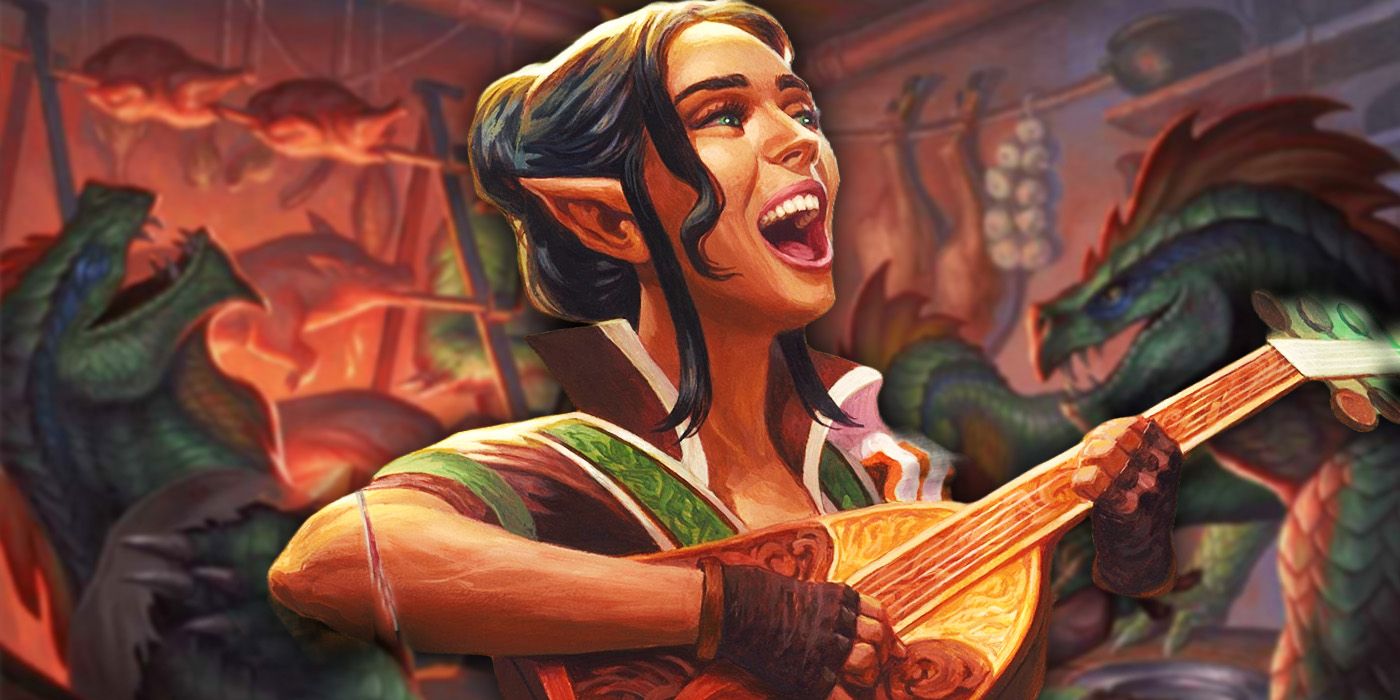
Related
Why DMs Shouldn’t Try To Be Funny In D&D & Let It Happen Naturally Instead
Veteran Dungeons & Dragons fans know the game is often incredibly funny, but Dungeon Masters should avoid scripted jokes, as these destroy immersion.
It’s fantastic to have goals for your players as a DM and plans for how you want things to go, but hanging onto these ideas too tightly can spoil the fun. Flexibility is key when running a game, and your players will enjoy things much more if you can improvise and have fun along with them instead of clinging to the notion of being the perfect Dungeon Master.
Great DMing Happens When You Don’t Try For It
Don’t Overthink & Let Everyone Shape The Story
Some of the best moments I’ve had around the table have come from little throwaway moments that grew into something bigger. There have been times when either I or another DM had to adapt to something the players were doing and didn’t overthink it, which then became a part of the narrative in a wonderful way. This has involved NPCs I plucked from thin air becoming recurring characters, as well as incorporating unexpected events into the overarching story.
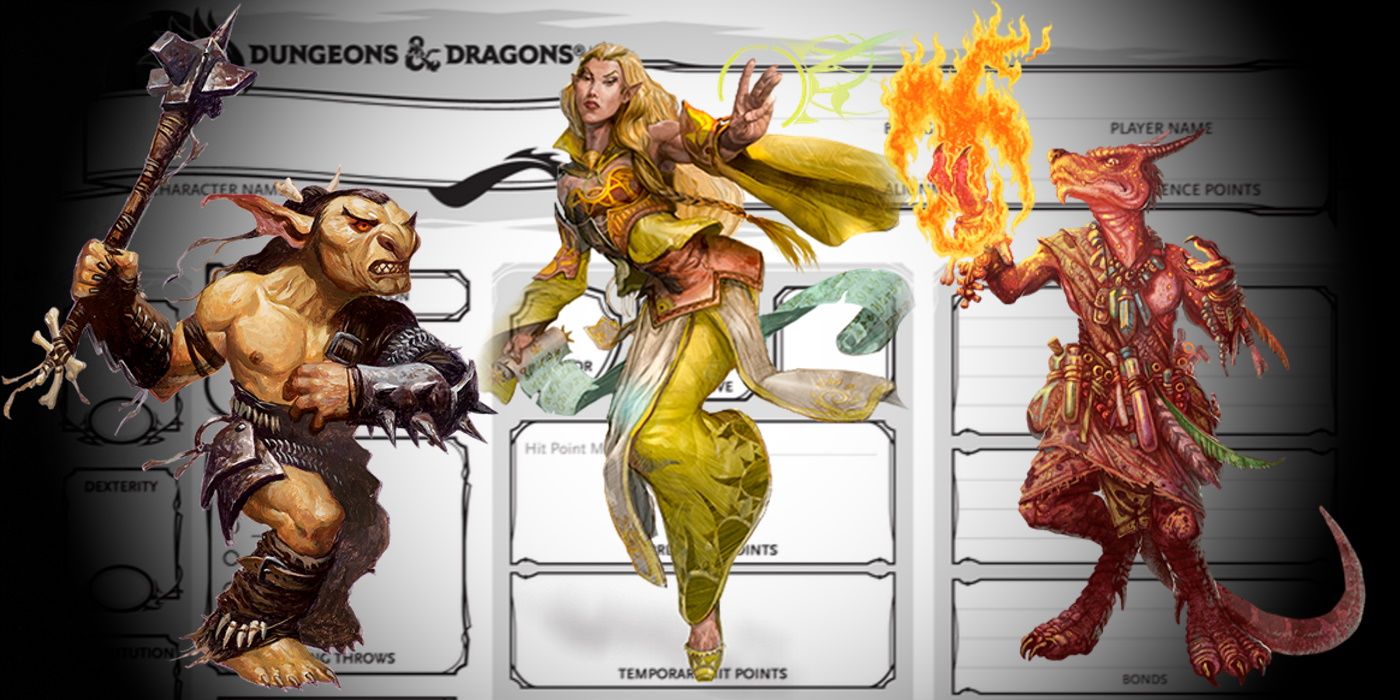
Related
15 D&D Character Ideas That Are Less Cliché Than Your Last One
Making unique characters for D&D can be a challenge since it’s easy to fall back on clichés. Some creative thinking can help break the mold.
As I’ve stated previously, having grand plans for what you want to achieve with your players can be a wonderful thing, but aiming to be the best DM straight away or every time you play will more often result in problems. Relaxing and letting things naturally unfold, with everyone at the table contributing to the experience, can result in incredible outcomes. It’s far better to find your own path than to try and imitate professionals such as Matthew Mercer or High Rollers’ Mark Hulmes.
Dungeons & Dragons is a form of collaborative storytelling, and you don’t need to be the greatest DM to tell a fun story with a group of friends. Becoming a great DM takes time and happens naturally as you find what works for you and what doesn’t. And the best DMs are those who don’t strive for professional levels of entertainment from their games, and who instead understand that creativity and fun make for the best experiences.
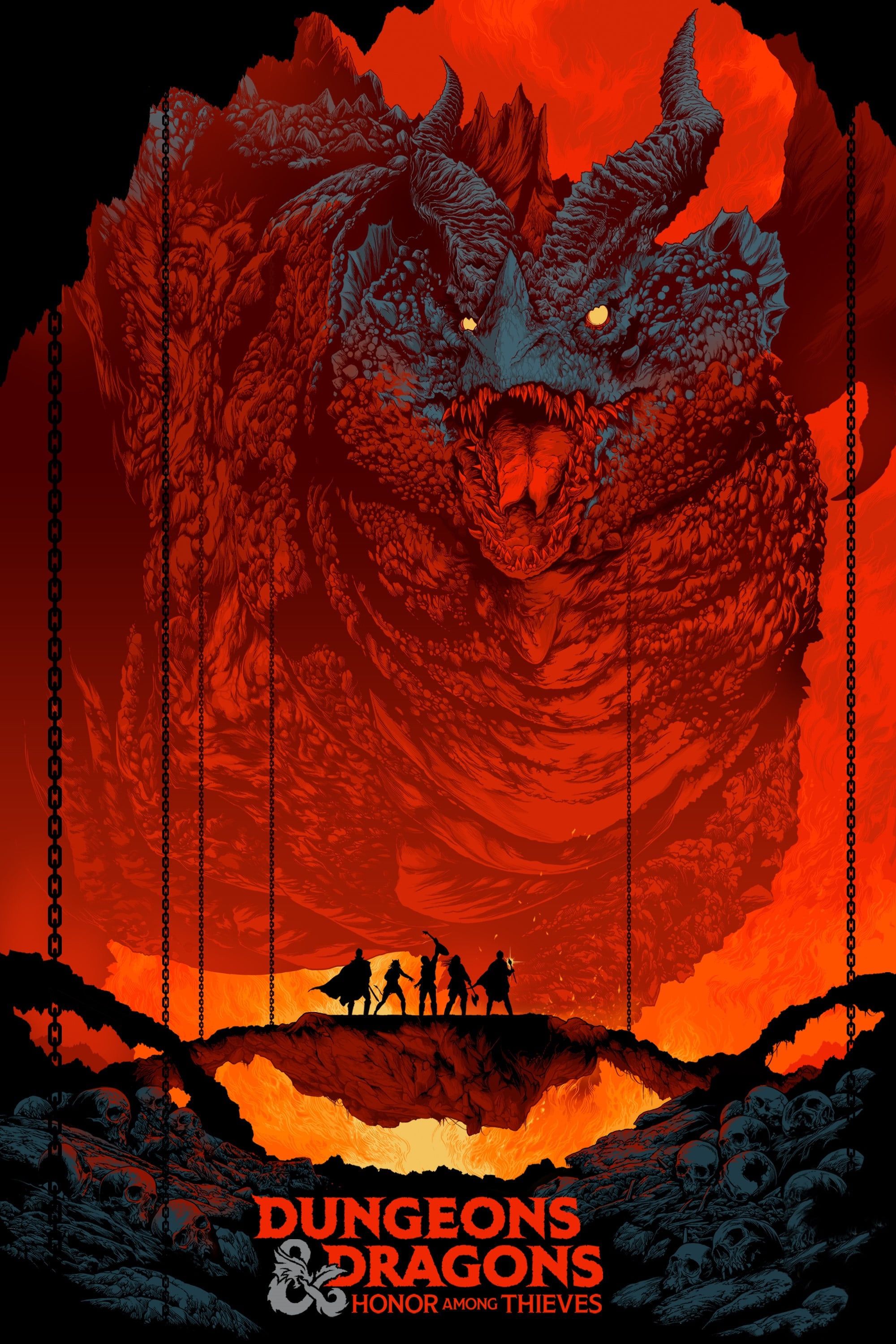
- Created by
-
E. Gary Gygax, Dave Arneson, Jonathan Goldstein, John Francis Daley
- Cast
-
Chris Pine, Michelle Rodriguez, Rege-Jean Page, Justice Smith, Sophia Lillis, Hugh Grant, Chloe Coleman, Daisy Head, Bradley Cooper, Jason Wong



